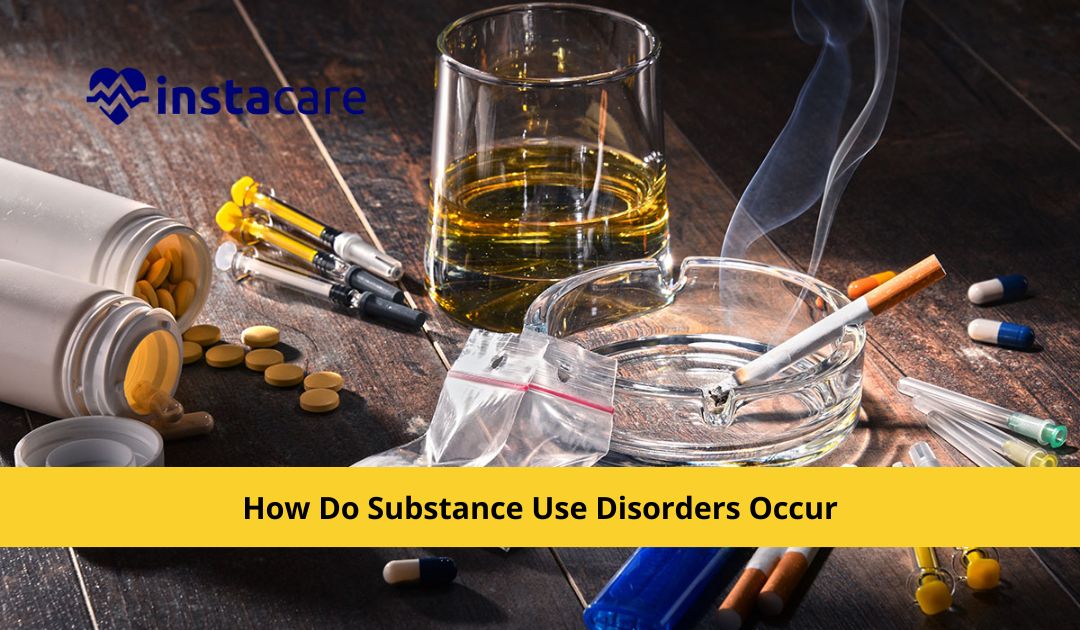An issue with substance use disorder is when a person frequently consumes a substance that upsets or distresses other people. This includes things like skipping out on work or school due to the substance, using it in risky situations such as operating a motor vehicle, getting into legal difficulty due to the substance, or having problems with friends and family as a result of the substance. The use of illegal drugs like marijuana, heroin, cocaine, or methamphetamine is known to cause substance use disorder, which is regarded as a medical illness.
Inappropriate use of legal substances like
alcohol, cigarettes, or prescription drugs can also result in this. The legal
drug that causes substance use disorders most frequently is alcohol. Continue
reading to know what is substance use disorder.
Which Drugs Are Linked To Substance Use Disorders
Common substances include:
- Alcohol
- Marijuana
- prescription drugs, such as pain relievers, stimulants, or
pain relievers
- Methamphetamine
- Cocaine
- Opiates
- Hallucinogens
- Inhalants
Why Do Substance Use Disorders Occur?
What kind of drug or alcohol usage are acceptable or
permitted depends on cultural and societal norms. What types of drug use are
permitted or prohibited is governed by public laws. It's still not confirmed
what kind of substance abuse qualifies as normal or acceptable other elements
that might readily contribute to drug use illness include inheritance,
environmental difficulties, societal pressures, distinctive personality traits,
and psychiatric problems. It is not always possible to determine which of these
traits affects a person the most, though.
What Signs Indicate A Substance Use Disorder?
The most typical actions that indicate drug or alcohol use or abuse are listed below. However, each person's symptoms could be a little bit unique. Some signs could be:
- Using more drugs or alcohol than intended or for longer periods.
- Wanting to cut down or control substance use but being
unsuccessful.
- Spending a lot of time obtaining, using, or trying to quit
drugs or alcohol.
- Having a strong desire or craving to use drugs or alcohol.
- Substance use affecting responsibilities at home, work, or
school.
- Using drugs or alcohol despite relationship problems caused
by their use.
- Giving up or reducing activities due to substance use.
- Engaging in risky behaviors like unsafe sex or drunk
driving.
- Continuing to use drugs or alcohol despite worsening health
or mental issues.
- Developing tolerance, needing more drugs or alcohol for the
same effects, or experiencing different effects with the same amount.
- Experiencing withdrawal symptoms when not using substances
or using them to avoid withdrawal symptoms.
Substance use disorder symptoms may overlap with other
physical or mental health problems. It's important to seek a diagnosis from a
doctor.
How Is A Drug Use Disorder Identified?
Typically, a family physician, psychiatrist, or other licensed mental health practitioner will diagnose substance use disorder. The following clinical outcomes, which are commonly modified by the substance, the amount used, and the time since the last use, could occur:
- Loss of weight
- Constant weariness
- Eye color
- Little attention paid to hygiene
- Laboratory anomalies
- Unexpected variations in blood pressure or heart rate
- Depression, worry, or difficulty sleeping
Treatment For Substance Use Disorder
Your doctor will choose a specific course of therapy for substance use disorder based on:
- Your age, general health, and medical background
- How severe the symptoms are
- The degree of the reliance
- What kind of chemicals do you use?
- Your tolerance for particular treatments, operations, or
medications
- Expectations for how the illness will progress
- Your preference or opinion
There are numerous inpatient and outpatient treatment (or rehabilitation) programs for substance use disorders. Programs are typically evaluated based on the substance type. Successful therapy must include long-term follow-up management or recovery-oriented systems of care, as well as detoxification (if necessary, depending on the substance).
In addition to continued medical care, long-term follow-up management commonly entails organized group gatherings and psychosocial support networks. Individual and family counseling is frequently suggested to identify the issues that might have contributed to the development of a substance use disorder or were caused by it.
Conclusion
It is challenging for someone who has a substance use disorder to control whether they use legal or illegal drugs or pharmaceuticals due to the cognitive and behavioral changes they have undergone. In addition to impeding daily activities, it can negatively impact one's health and social functioning. As a result, substance use disorder is a chronic, recurrent problem that requires professional care and assistance to be treated and overcome.


